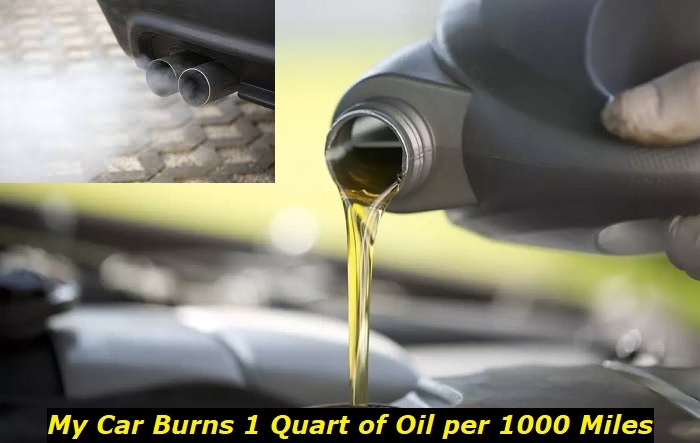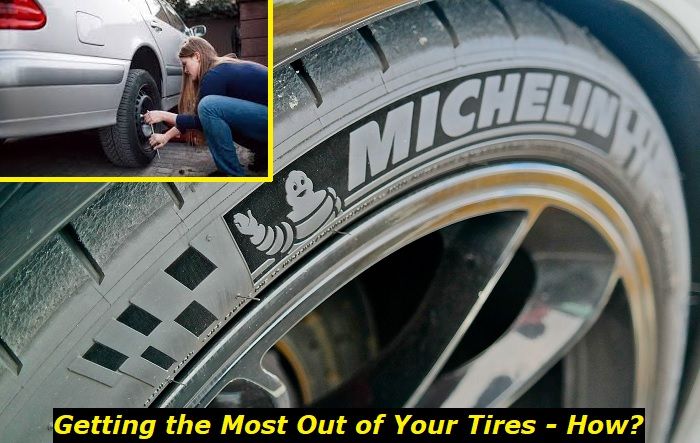If your engine burns 1 quart of oil every 1000 miles, it's still OK but on the edge of being bad, so you should track the situation carefully. If your vehicle starts burning even more oil than 1 quart per 1000 miles, it's a worrying situation and the engine needs to be inspected.
Oil consumption highlights
- Level of urgency:high
- Average mileage:over 100,000 miles
- Repair cost:$900 - $3,500
- DIY repair:possible but extremely complicated
- Commonreasons:worn-out valve seals, piston rings, internal engine problems, turbocharger problems
- If ignored:fatal engine damage, catalytic converter contamination, EGR system contamination
- How to solve:replace the worn-out parts, inspect the engine for oil consumptionreasons

What's wrong with your engine if it burns oil?
Well, all internal combustion engines work with some oil in them. The oil is needed to lubricate the engine and improve friction between different parts like valves and head or pistons and cylinders. Initially, the oil is sealed in certain passages and reservoirs inside the engine and it isn't burnt. But after some time, these seals and gaskets may go bad and let the oil flow to some places in the engine where it shouldn't be.
This is how the oil burns in your engine, in most cases. Here's the step-by-step description of what happens:
- Initially, the oil is sealed, so it just circulates inside the engine and the level stays the same from one regular maintenance to another.
- After some time, valve seals may become harder than needed and some drops of oil get directly into the combustion chamber and burn there.
- After some more time, the piston rings (also called oil rings) are worn out and start leaking oil to the combustion chamber from below.
- Also, other seals and gaskets may cause outer and inner leaks that lead to a drop in oil level.
- In older or damaged engines, the cylinder block may lose its shape and the cylinders may go oval making it easier for oil to leak into the combustion chamber.
This is how it happens. When the engine is still new, it's completely OK and it doesn't take oil when you drive it. But as it gets older, the natural tear and wear takes place and the engine becomes burning some oil. It's just OK - there is nothing to worry about. But if the engine burns much more than 1 quart of oil, it should start worrying you.
Also, there are other reasons why the oil level may drop in the engine. For example, there may be outer leaks and the oil just leaves the engine slowly. Also, the poor-quality oil may burn even without getting into the combustion chamber. One more thing is that after you change the oil, the level may drop because the filter has some capacity and the oil filled it - just add some more engine oil to make the level optimal.
How much oil consumption is too much for your engine?
It all depends on the type and the displacement of an engine. Smaller engines that have up to 2 liters of capacity, usually don't burn a lot of oil even after they have traveled a significant distance. But V6 and V8 engines are known to burn some oil even when they are in perfect condition.
I personally had an old Passat in Europe with a 2.8L V6 engine and it burned approximately 1 quart of oil per 1000 kilometers (620 miles) and it was OK for it. While driving in the city didn't require any oil topping up, once I went on the highway, the engine started burning oil like crazy. And it was OK, there were no problems with this engine and I happily drove it for over 150,000 miles.
But then I had a Fiesta with a small European engine and I was surprised to know that it doesn't burn any oil at all. I added approximately 200 grams of oil within 6,000 miles of the maintenance interval.
So, the normal consumption of oil largely depends on your engine. Bigger engines are more prone to oil consumption while smaller ones shouldn't burn much oil.
But you should anyway understand when your engine burns oil because of its natural tear and wear and when the engine urgently needs some help. Here are the symptoms of fatal problems with the lubrication system in your vehicle:
- Black smoke from the tailpipe. Black or grey smoke shows you that a lot of oil is burnt at the moment. This shouldn't be ignored.
- The sharp drop in oil level. You checked the level in the morning, and it was OK, then you check it in the evening and it's not OK anymore. This tells you about a big problem.
- Spark plugs are fouled. If your spark plugs are affected by oil and covered by an oil film, this means a lot of oil is burnt in the engine.
- The catalytic converter is often clogged. The clogged converter is a normal thing when it's old. But if it's clogged and broken too often, the problem may be in the burning oil.
- Exhaust valves are covered in oil. This means that some oil doesn't even burn and tries to escape the chamber through the exhaust valves.
If you notice that your vehicle burns too much oil, you should find a way to solve this problem. In most cases, you will need a professional engine repair in a shop. Unfortunately, I don't know any DIY methods that would be friendly to people with no experience as car mechanics. If your engine burns oil, you will need a lot of complicated procedures to be done in your car.
If you keep driving like that, many parts are at risk of dying. Let's see what problems can show up or grow in the engine.
What can oil consumption lead to in your engine?
The bad consumption of oil is not good for your engine. While burning up to one quart of oil every 1000 miles is more or less OK, burning more than that will obviously affect the vehicle in all kinds of possible ways.
Here are the possible consequences:
- injectors will clog and break much more often;
- spark plugs will get fouled quickly and will affect the coils;
- the exhaust valves will be contaminated and will not do their job well;
- the catalytic converter may be broken because of oil contamination and overheating;
- if you have an EGR valve, it will quickly be destroyed;
- low oil level if overlooked can lead to fatal issues with your engine.
As you see, it's not that good when your engine burns some oil. The worst thing happens when you don't check the level of oil regularly and suddenly realize that the level is too low. You usually understand this because the oil-pressure warning light is on the dashboard. It means that the problems have already started and the engine is right now destroying itself.
How can you prevent these problems?
First of all, you should regularly check the oil level. Make it a rule for you to check it every Sunday morning or every time you refill the fuel tank. This will obviously help you notice the moment when the engine starts burning oil and needs some help. Also, this will help you add some oil when needed which is an important thing that will save your engine from dying.
If the oil consumption has already started bothering your engine, here's what can help you deal with it:
- Try another type of oil if it's allowed by the vehicle manufacturer - you may try a more viscose oil like 5w30 instead of 0w20. But make sure this oil is still recommended by the manufacturer.
- Check the engine for leaks. Very often, the dropping oil level is not just about the burning oil, it may be because of the outer leak.
- Check exhaust when warming up the car in the morning. If you see grey or black smoke, it's likely that the vehicle is consuming a lot of oil.
- Have the engine inspected. Maybe, your engine needs the replacement of the valve seals and/or piston rings.
- Have the engine repaired. After proper professional inspection, you may also repair the engine in a good repair shop or in the dealership.
Engine repair may also appear to be quite expensive. For example, if the culprit of oil consumption is one of the valve seals, you should pay for this repair. But if the inspection revealed bad piston rings, you should count the money. Piston rings replacement will require taking the engine apart and this may cost a lot in terms of labor.
You should start worrying if your car burns more than 1 quart of oil every 1000 miles. For bigger V6 and V8 engines even larger oil consumption will still be more or less OK.
About the authors
The CarAraC research team is composed of seasoned auto mechanics and automotive industry professionals, including individuals with advanced degrees and certifications in their field. Our team members boast prestigious credentials, reflecting their extensive knowledge and skills. These qualifications include: IMI: Institute of the Motor Industry, ASE-Certified Master Automobile Technicians; Coventry University, Graduate of MA in Automotive Journalism; Politecnico di Torino, Italy, MS Automotive Engineering; Ss. Cyril and Methodius University in Skopje, Mechanical University in Skopje; TOC Automotive College; DHA Suffa University, Department of Mechanical Engineering






Add comment